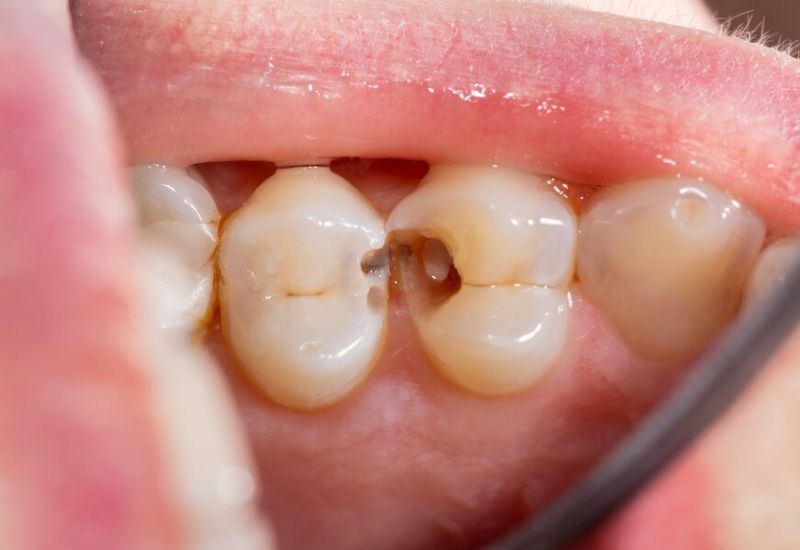Tooth decay is a widespread dental issue globally, particularly among children. Alarmingly, the incidence of molar cavities in children is on the rise. Understanding the causes and implementing preventive measures is crucial for parents concerned about their children’s dental health.
1. Causes of Molar Cavities in Children
1.1 Why Are Children Prone to Cavities?
Several factors contribute to the high risk of cavities in children:
– Unhealthy Diets: Consuming foods and drinks high in sugar, including sugary snacks and carbonated beverages, significantly contributes to tooth decay. Bacteria in the mouth convert sugar into acid, which erodes tooth enamel, leading to cavities.
– Improper Oral Hygiene: Frequent consumption of sugary foods without proper oral hygiene creates an environment conducive to bacterial growth, damaging the tooth enamel. Many children do not learn effective brushing techniques early on. Inadequate or ineffective brushing can result in plaque buildup and bacterial proliferation, leading to cavities.
– Lack of Fluoride: Fluoride is a mineral that protects tooth enamel from acid damage and helps repair weakened enamel. Children who do not receive sufficient fluoride are more susceptible to cavities.
– Harmful Habits: Habits like thumb-sucking or using a pacifier can exert pressure on teeth and jaws, leading to changes in tooth structure and enamel loss.

Children develop molar cavities due to various reasons.
1.2 Why Are Molar Cavities Increasing in Children?
The rising number of children with molar cavities is primarily due to the location and function of molars. Molars, situated at the back of the mouth, are hard to clean and have deep grooves where food can easily get trapped. Over time, this trapped food turns into bacteria, causing cavities. Moreover, molars are the primary teeth used for chewing, making their enamel more prone to wear and tear over time.
2. Can Decayed Molars Regrow?
The possibility of regrowth or repair of decayed molars depends on the extent of the damage and the specific conditions in each case.
2.1 Cases Where Molars Can Regrow
– Minor Decay: If the cavity only affects a small part of the enamel and does not extensively damage the tooth structure, regrowth is possible.
– Timely Dental Treatment: Prompt treatment and appropriate dental care can preserve the remaining enamel, facilitating the regrowth process.
– Young Age and Position of Molars: The smaller molars (premolars) that fall out naturally between ages 6 and 12 can regrow if timely and effective treatment is provided for decay.
2.2 Cases Where Molars Cannot Regrow
– Severe Decay: Extensive decay affecting the internal structure and pulp of the tooth can prevent regrowth.
– Delayed Treatment: Failing to receive timely dental care or not adhering to post-treatment care can hinder the regrowth of molars.
– Permanent Tooth Damage: If a child’s permanent molars decay and break, they cannot regrow. In such cases, dental professionals often recommend restorative options like dental crowns to prevent further complications.
3. Preventive Measures for Molar Cavities in Children

Children should form the habit of regular oral hygiene from an early age.
Proper oral care from an early age is crucial in preventing molar cavities. Here are some key preventive tips:
3.1 Effective Daily Oral Hygiene
– Regular Brushing: Children should brush their teeth at least twice a day to maintain oral cleanliness and reduce bacterial attack. Using fluoride toothpaste in appropriate amounts helps strengthen the enamel.
– Flossing and Mouthwash: In addition to brushing, children should floss to remove food particles between teeth. Using child-friendly mouthwash can enhance cleanliness and provide fresh breath.
3.2 Limiting Sugary Foods and Drinks
– Reduced Sugar Intake: Limiting the consumption of sugary snacks, candies, and carbonated drinks is vital. Sugar is a major cause of tooth decay.
– Healthy Diet: Incorporate foods that promote dental health into children’s diets, such as calcium-rich foods, fluoride-containing water, and a variety of vegetables.
3.3 Regular Dental Check-ups
Instill the habit of regular dental check-ups from a young age. Routine examinations help maintain oral health and allow early detection and treatment of any issues.

Regular dental check-ups are essential to maintain healthy teeth and gums.
Understanding the causes of increasing molar cavities in children underscores the importance of proper oral care and timely dental treatment. Parents should model good dental hygiene practices and ensure their children follow suit. Taking these steps will help children maintain healthy teeth and prevent cavities effectively.








